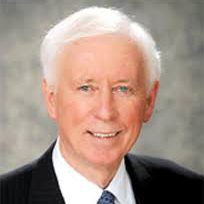BMA: No Confidence in British Health Secretary
At the opening session of the British Medical Association (BMA) yesterday here in Edinburgh, Scotland, members of the Annual Representative Meeting made clear they are not pleased with the government’s management of the National Health Service (NHS) in general and Health Secretary Jeremy Hunt’s performance in particular. In an almost unanimous vote the delegates passed a resolution “that this meeting: 1. notes the Health Secretary, Jeremy Hunt’s attack on the NHS and his comments about mediocrity and coasting; 2. has no confidence in the Secretary of State for Health, Jeremy Hunt.”
What I heard was speaker after speaker express frustration and anger over current conditions in the NHS. These are conditions which date in part to enactment of the “Health and Social Care Act 2012”. This act provided for a restructuring of the NHS to respond to challenges of increased costs, rising demand for health care services, need for improvement in care and competition for public resources brought on by tight public finances. According to the government the “Health and Social Care Act 2012 puts clinicians at the center of commissioning, frees up providers to innovate, empowers patients and gives a new focus to public health”. Physicians at the BMA meeting think otherwise.
During the same session yesterday an additional resolution was passed; “That this Meeting asserts that the Health and Social Care Act 2012 is bad for patients, bad for the NHS, and bad for the public.” The resolution went on to demand repeal of the act and call for a campaign to achieve that aim.
Mark Porter, MD, Chairman of the BMA Council, in his address to the assembly talked about the role of the 152,000 BMA members in helping patients and improving the health of the nation. He described the NHS as a 65 year-old “bold and beautiful” structure of health care. He went on to say that “funding has been drained from the NHS” and “the government is not listening”. He stated the profession is on edge and the NHS is on edge. He said that the BMA must “… make sure the voice of the profession is heard. If not, the NHS will fail.”
Brian Keighley, Chairman of the Scottish Council, called for a new culture of mutual respect recognizing the centrality of patients. He said the government should abandon top down measures, and abhorred what he described as denigration of the medical profession by bureaucrats.
Michael Rees, Co-Chair of the Medical Academic Staff Committee of the BMA, said “….. over the past few years the NHS seems to have lost its way”. He called it a huge mistake for the NHS to ignore the academic community.
Phillip Banfield, Chairman of the Welsh Council, talked about “savage service cuts” in Wales exacerbating a doctor shortage in primarily rural areas.
If the good news is that we as physicians have the same problems, the bad news is that we have these problems. What I also saw and was encouraged by yesterday was the good news that physicians care. They are passionate in pointing out where the structure has failed, and in suggesting a different course. They care that their patients have access to a health care system that provides accessible high quality. And because they care they are involving themselves in the most important, the hard work of seeking public policy that supports such a system. I wish them well and will look forward to observing the rest of the meeting.

